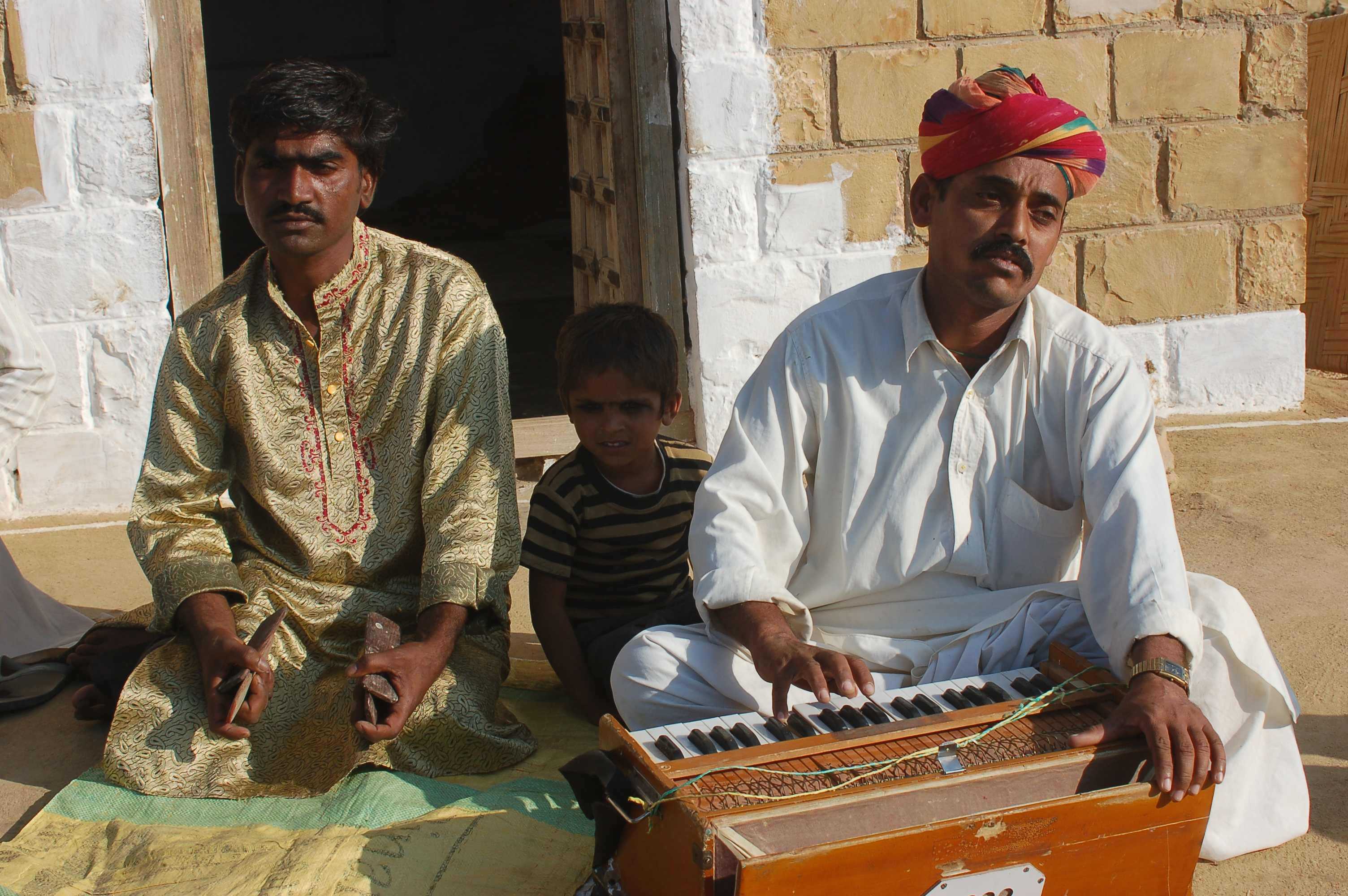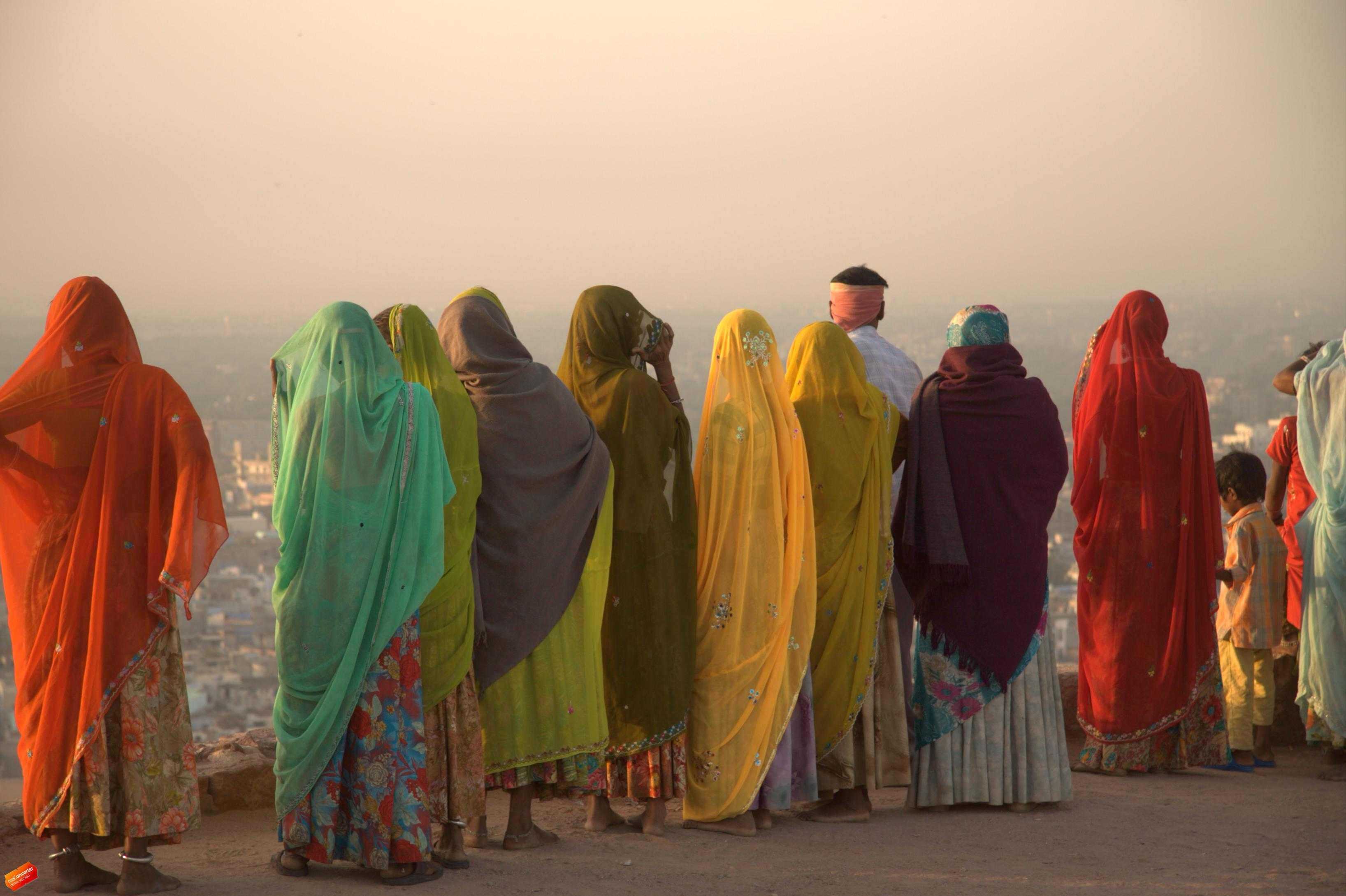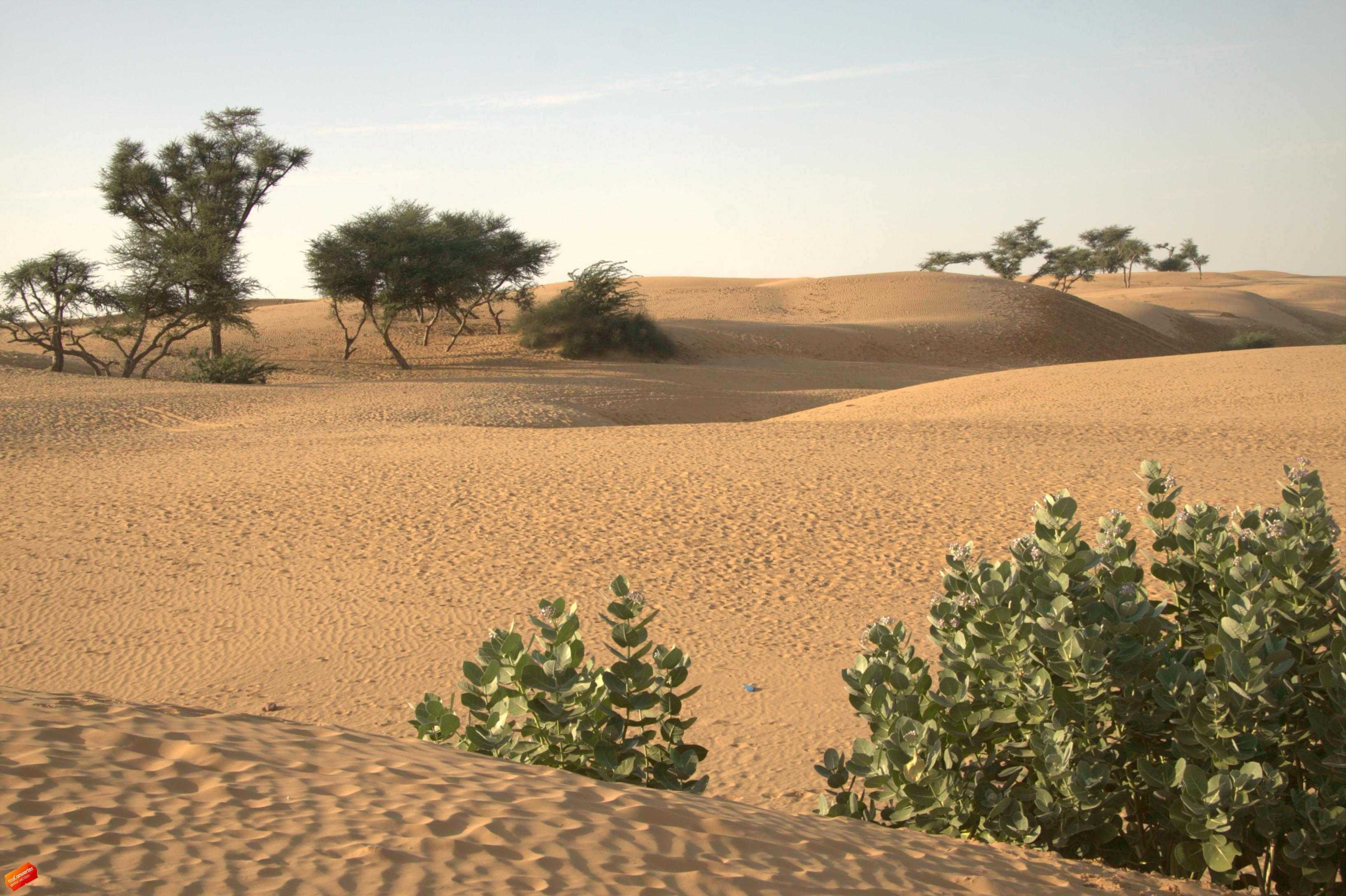The Manganiyars have created ripples in the endless sand dunes of Rajasthan with their soulful singing.
I first met them 20 years ago in Shilpagram in Udaipur. They were regaling audiences in this unique miniature India, replete with rustic houses from every state, designed by the master artist Haku Shah. As they sang songs that were a heady blend of classical and folk, they got into a Sufi-like trance, celebrating the joy of living in the moment, and getting lost in it.

My journey to the land of their birth took me to a quaint village named Kanoi that sleeps in the sand dunes of the Thar desert, near Jaisalmer. Walking the bylanes here, I discovered that there are no farmers here and no herdsmen. Music is their living, and every house has a musician. And even the walls of their humble houses have ears. For music.
Though most of the singers in this village were on musical tours across the world, I was fortunate enough to meet Ishaq Khan, the only singer who had stayed back for some personal reasons. He assembled the khadtaal and the khamaicha players in no time, and put up a private performance on the verandah of his house. There was just my wife and me in the audience, apart from a bunch of kids who were unknowingly imbibing the early lessons of a rich oral tradition that has been passed on from generation to generation.
From Kanoi, I went to another Manganiyar village named Khuri about 60 kms away. Here I met a septuagenarian singer, Jalal Khan, who shared with me the reasons why their community is unique. Though they are born Muslims, they sing praises of Allah and many Hindu gods with equal gusto. Interestingly, every performance of theirs starts with an invocation of Lord Krishna. Small wonder, because every Manganiyar is a Sufi at heart.

As I was sitting on Jalal Khan’s cot sipping tea laced with the salty taste of camel milk, he shared with me another peculiar tradition of the Manganiyars. Here, children are only given temporary nicknames. Once the community recognizes them as great singers or musicians, each of these kids is allowed to choose a name of their liking. And they will be then known to the world by that name. Talk about earning a name for oneself.

But then Jalal pointed out an anomaly. One of the most well-known singers among them is called Kachra which means garbage. How come he chose such a self-effacing name for himself? Therein hangs a tale. And Jalal shared it with me. For many years, Kachra Khan’s parents were childless. When they heard about a Sufi saint who had come a-visiting their village, they went to see him. And told him, ’We have been childless for many years. Please bless us with a child.’ The Sufi saint told them that they will soon have not one but two children. Provided they agree to his condition. He said, ’Your first child will be born a good singer. When the time comes, let him choose his name. But your second son will be born a genius. You should name him Kachra.’ The bewildered couple agreed but wanted to know the reason behind this strange command. The saint clarified, ’Though he will be born a genius, and will get fame at a very young age, success would go to his head and cause his downfall. The name Kachra will help him stay firmly rooted to the ground, all through his life.’
In the simmering sand dunes behind Jalal’s house, I saw the reason why the Sufi saint said that fame and fortune are just mirages. You think they are real, but they don’t exist.
